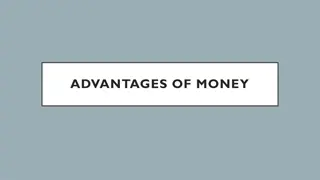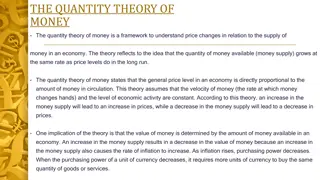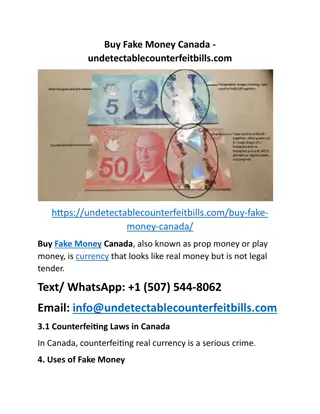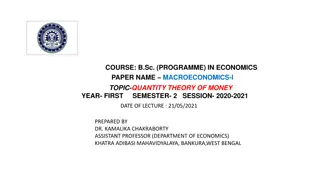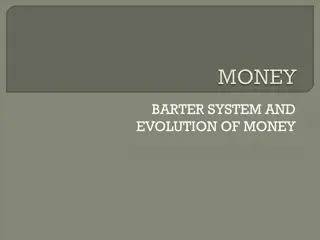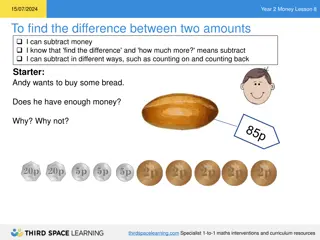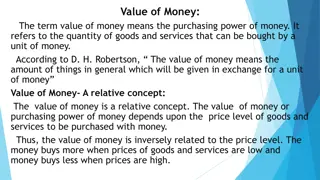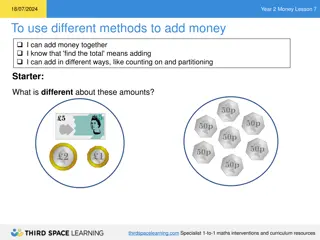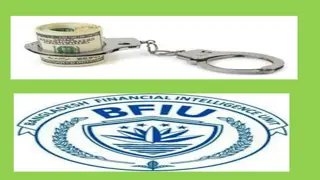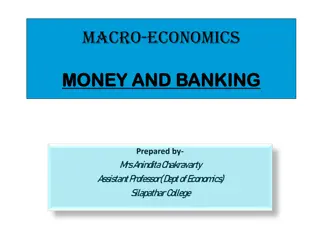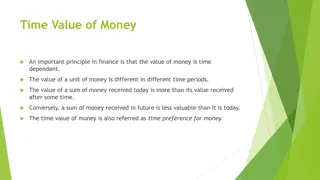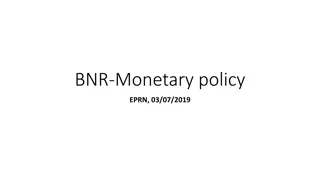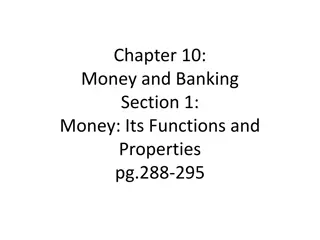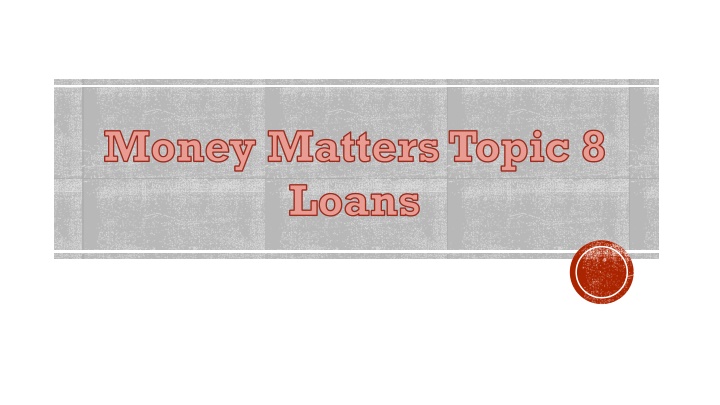
Different Types of Loans and Interest Rates
Learn about loans and interest rates, including the definition of loans, common types of non-educational loans like auto loans, personal loans, mortgage loans, and home equity loans. Discover how interest rates can be fixed or variable, and the importance of assets in loan financing. Understand the implications of borrowing with collateral and the risks associated with non-payment.
Download Presentation

Please find below an Image/Link to download the presentation.
The content on the website is provided AS IS for your information and personal use only. It may not be sold, licensed, or shared on other websites without obtaining consent from the author. If you encounter any issues during the download, it is possible that the publisher has removed the file from their server.
You are allowed to download the files provided on this website for personal or commercial use, subject to the condition that they are used lawfully. All files are the property of their respective owners.
The content on the website is provided AS IS for your information and personal use only. It may not be sold, licensed, or shared on other websites without obtaining consent from the author.
E N D
Presentation Transcript
Money Matters Topic 8 Loans
What is a Loan? When money is borrowed to pay for something. The repayment usually includes interest. If no assets are discussed, interest is high (example-credit cards). If assets are financed (like a home), interest is lower. Borrowing with something like a home as collateral is called an encumbrance, or lien. If you don t make the payments, the lender takes the asset.
Interest Rates Can be fixed and will not change or Can be variable and likely tied to federal prime interest
SOME COMMON TYPES OF NON- EDUCATIONAL LOANS WILL FOLLOW
Auto Loans Used to buy a car (or other vehicle). Usually the car is the asset and you borrow against the car s value. Non payment hurts your credit and leads to repossession by lender.
Personal Loans Higher interest because usually there is no asset for a lien. People use these for a variety of reasons, including vacations, holidays, weddings, emergencies, and home improvements. Generally financially best to avoid if possible. Financial advisors recommend having 6-9 months salary in savings to avoid these. Dave Ramsey says build up savings and eventually become self-insured.
Mortgage Loans Used for homes. Can be fixed rate or variable rate. Be wary of variable rates. Term is usually 20 or 30 years, but others are used sometimes. The home is the asset. Usually financed max is 80% of the home s value. Better credit leads to better interest rates. Rates are tied to the federal prime rate. Closing costs-have to pay bank and lawyers to process the loan, record it at county, and review legal requirements. Points-pay a percentage up front for lower interest rates. Break even point is in the 6 year range. PMI-private mortgage insurance - A charge used to help protect the lender if payments are not made. Escrow-refers to the way some lenders add taxes and insurance costs to the monthly payment to ensure they get paid. Search for mortgage calculators. Many exist, including calculator.net at the link https://www.calculator.net/mortgage-calculator.html
Home Equity Loans After a home s value increases and the mortgage lien decreases, you build home equity. You can borrow against that. Loans and credit lines can be fixed or variable rates.
Amortization Schedules These show how mortgages (and other loans) are computed. The table shows how interest is paid more than principal at the beginning. It helps to pay loans off early. Why? There is less principal to be compounded over the remaining life of the loan. View examples of mortgages and amortization schedules. There are many online sources, including calculator.net at the link https://www.calculator.net/mortgage-calculator.html. Also view mortgage payoff early sites. Again, many exist, including Ramsey solutions, found at https://www.ramseysolutions.com/real-estate/mortgage-payoff- calculator
Loan Considerations Can help build credit. Many people use them for homes, cars, and various reasons. However, the more you can do without a loan (and interest), the better off you ll be financially. Think about companies that offer on the spot tax returns. If you do not repay loans, there are consequences. This could include automobile repossession and mortgage foreclosure. Both hurt your credit score and therefore your future borrowing power. Life insurance can help cover mortgages. Remember Dave Ramsey s idea of becoming self-insured.



